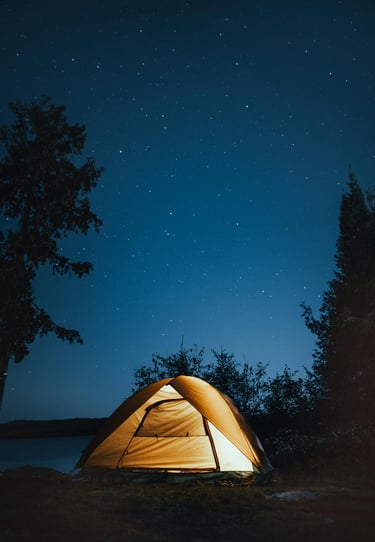How to Cope with Bugs While Backcountry Camping
BACKCOUNTRY


Backcountry camping offers an unparalleled connection to nature, but it also comes with its share of challenges—one of the most common being bugs. Mosquitoes, ticks, and biting flies can quickly turn an enjoyable trip into a frustrating experience. Here are some effective strategies to keep the bugs at bay and ensure a pleasant camping adventure.
1. Choose Your Campsite Wisely
Select a campsite away from stagnant water, as it is a breeding ground for mosquitoes. Opt for elevated and breezy spots, which tend to have fewer insects. Additionally, setting up camp in direct sunlight rather than shaded areas can help reduce the presence of bugs.
2. Use Effective Bug Repellents
Applying a good bug repellent is crucial. Products containing DEET or Picaridin are highly effective against mosquitoes and ticks. For a more natural option, repellents with oil of lemon eucalyptus can also be quite effective. Reapply as necessary, especially after swimming or sweating.
3. Wear Appropriate Clothing
Dress in long sleeves and pants to minimize exposed skin. Light-colored clothing is less attractive to many insects and makes it easier to spot ticks. Consider treating your clothing and gear with permethrin, a repellent that can remain effective through several washes.
4. Utilize Bug Nets and Tents
Invest in a tent with fine mesh netting to keep bugs out while you sleep. For extra protection, consider using a bug net over your sleeping area or hammock. Wearing a head net can also be beneficial, especially during peak bug activity times, such as dawn and dusk.
5. Keep Your Campsite Clean
Food scraps and waste can attract bugs. Keep your campsite clean by storing food in sealed containers and disposing of waste properly. Avoid using scented products like lotions and perfumes, as these can attract insects.
6. Make Use of Campfires
Smoke from campfires is a natural insect deterrent. Sitting close to the fire in the evening can help keep bugs at a distance. For additional protection, you can burn herbs such as sage, rosemary, or thyme, which have insect-repelling properties.
7. Consider Timing and Weather
Bugs are most active during warmer months and peak at dawn and dusk. Plan your activities accordingly to avoid these peak times. Additionally, camping in cooler, breezier weather can help reduce bug encounters.
By implementing these strategies, you can significantly minimize bug-related annoyances and enjoy the beauty and serenity of backcountry camping.
